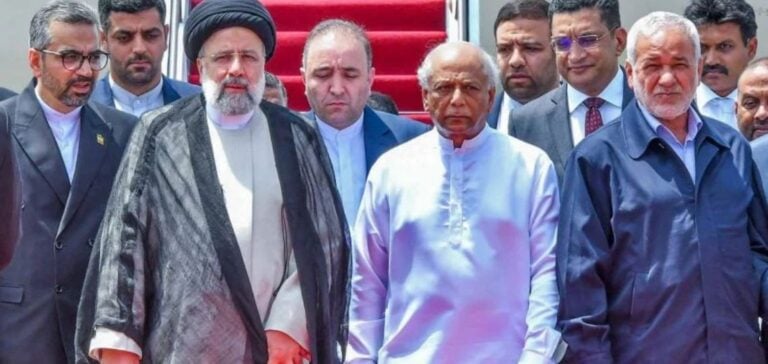Iranian President Ebrahim Raissi continued his tour of South Asia, focusing on energy cooperation, arriving in Sri Lanka on Wednesday. However, unlike his previous visit to Pakistan, he is accompanied by a delegation without Ahmad Vahidi. Vahidi’s absence, announced by the Sri Lankan authorities, follows a red notice issued by Interpol at Argentina’s request for his alleged involvement in the 1994 attack on the Amia Jewish mutual in Buenos Aires.
Reactions and legal implications
The Iranian Interior Minister, who headed the al-Quds Force at the time of the attack that killed 85 people, returned to Iran before the visit to Sri Lanka. This hasty return came just after the Argentine government had stepped up its efforts to arrest him, asking Pakistan and Sri Lanka to detain him on the basis of this red notice.
Inauguration of an energy collaboration
Despite the tensions, Raissi’s visit was marked by the inauguration of the Uma Oya hydroelectric complex, a project partly financed by Iran and crucial to the region’s water and energy supply. The event was attended by local political figures, including Sri Lankan President Ranil Wickremesinghe, highlighting continued cooperation despite international sanctions.
Economic impact and bilateral agreements
The Uma Oya project, which represents an investment of 514 million dollars, has experienced delays, but bears witness to the strong economic ties between Iran and Sri Lanka. Funding for the project began with $50 million from the Iranian Export Development Bank, and despite sanctions, Sri Lanka financed the rest, even repaying an Iranian oil debt with tea, the island’s main export.
This is the first visit by an Iranian president to Sri Lanka since Mahmoud Ahmadinejad’s in 2008, illustrating a renewed effort to strengthen bilateral relations in a complex regional context and under international scrutiny due to the legal and political implications of Vahidi’s initial presence.






















